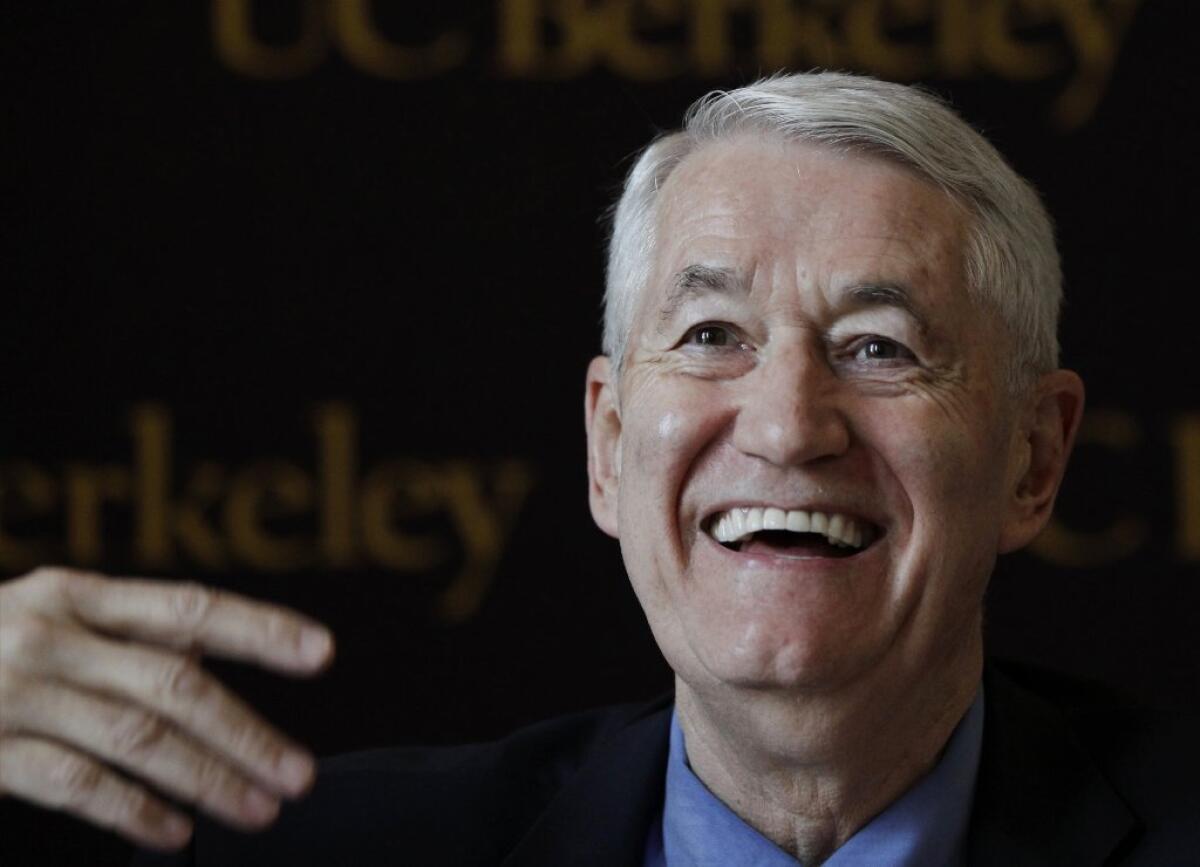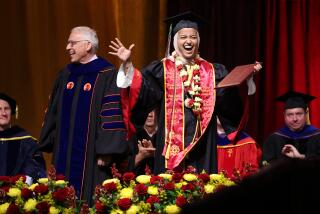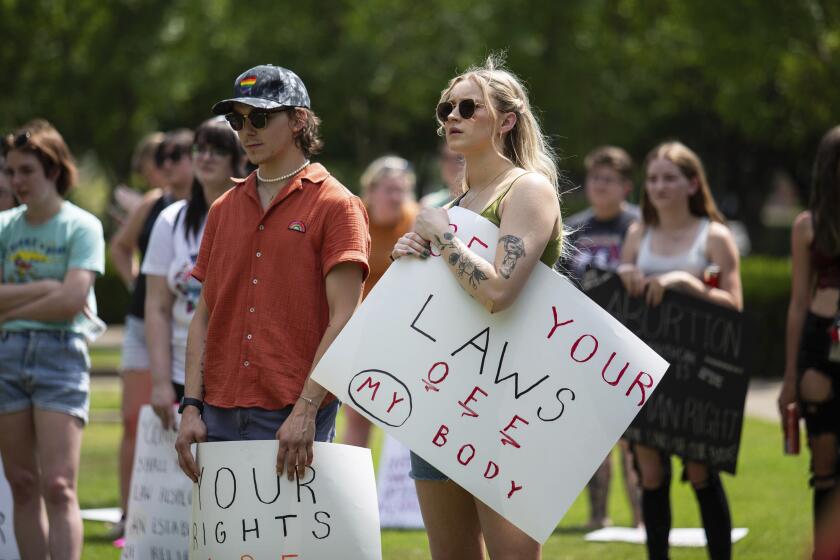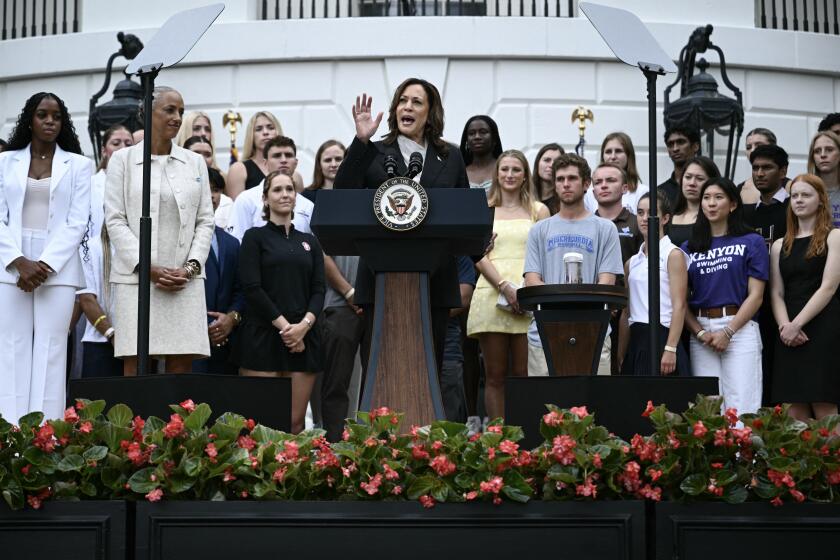Editorial: What college kids don’t want to hear

Last week, former UC Berkeley Chancellor Robert J. Birgeneau joined a growing group of prominent public figures who have declined invitations to speak at college commencement ceremonies because of protests. Birgeneau — and the students who might have been edified by his remarks — are victims of a shortsighted censoriousness that is becoming a familiar feature of graduation season.
Birgeneau withdrew as a commencement speaker at Haverford College in Pennsylvania after some students there sent him a letter threatening to oppose his appearance unless he apologized (again) for the use of force against Occupy movement protesters at UC Berkeley in November 2011, and unless he complied with a long list of other demands.
One was that he write an open letter to Haverford students “explaining your position on the events of Nov. 9, what you learned from them, how you have put what you learned into practice and how your actions have or have not been in line with the values of peace, nonviolence and political participation.” As a grace note, the students conceded that Birgeneau had done admirable work on behalf of “LGBT rights, affordable education and the plight of undocumented students.”
Not surprisingly, Birgeneau sent his regrets. He follows former Secretary of State Condoleezza Rice, who declined an offer to speak at commencement ceremonies at Rutgers University, and International Monetary Fund Managing Director Christine Lagarde, who withdrew as the commencement speaker at Smith College.
Rice’s appearance was opposed by some students and professors because of her
role in what the Rutgers Faculty Council called the George W. Bush administration’s “effort to mislead the American people about the presence of weapons of mass destruction” in Iraq. A student petition at Smith College objected to Lagarde’s participation because IMF development programs in poor countries have “led directly to the strengthening of imperialist and patriarchal systems that oppress and abuse women worldwide.”
It’s true, as one of Rice’s critics has pointed out, that academic freedom doesn’t guarantee the right to be a commencement speaker or receive an honorary degree. Colleges are free to invite whom they please to address students at their graduation, and may have good reasons not to choose particularly partisan or polarizing figures. And students certainly have a right to respectfully protest a speaker with whom they disagree.
Still, the cascade of canceled speeches is worrying for several reasons. First, there is the uncompromising nature of the opposition: the demand that a speaker agree 100% with the protesters. This insistence on doctrinal purity is antithetical to the notion that a university ought to be an environment in which students, far from being protected from opposing views, are challenged to engage with them.
Second, as is often the case with the politics of denunciation, the rhetoric is strident and overblown. Even if one believes that the Bush administration exaggerated the evidence that Saddam Hussein possessed weapons of mass destruction, that doesn’t mean Rice is a liar (or, as some students claimed, a war criminal). And while the IMF’s proposals for financial reform in the developing world are a legitimate subject of debate, the demonization of the agency as an agent of imperialism is absurd.
Attempts to preempt speech on campus aren’t limited to graduation ceremonies, and come mostly, but not exclusively, from students and faculty who think of themselves as progressive. For example, last fall, protesters at Brown University who were outraged over the New York Police Department’s “stop and frisk” policy prevented Police Commissioner Raymond Kelly from delivering a lecture on “Proactive Policing in America’s Biggest City.” Their assumption was that Kelly had forfeited his right to speak because he presided over a “racist” police department.
The notion that free speech and tolerance of opposing views are values that can be sacrificed in the cause of freedom and equality has a long pedigree. But it has no place on a college campus, on graduation day or at any other time.
More to Read
A cure for the common opinion
Get thought-provoking perspectives with our weekly newsletter.
You may occasionally receive promotional content from the Los Angeles Times.






